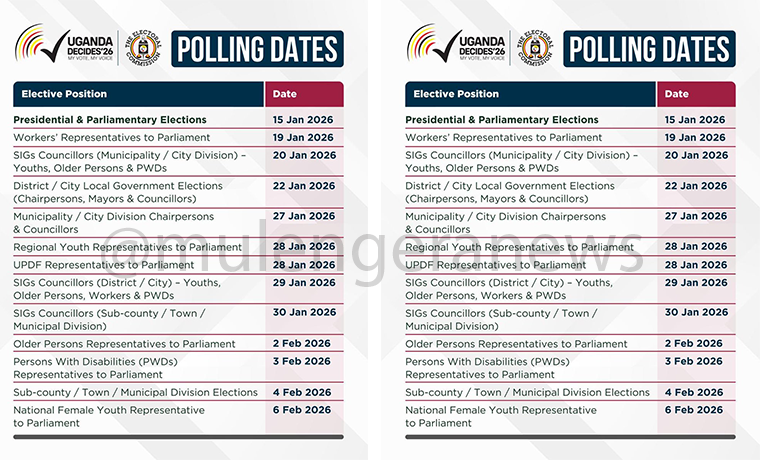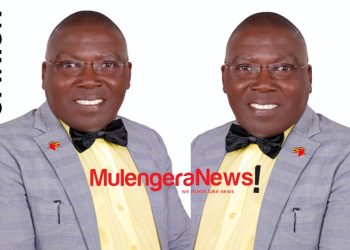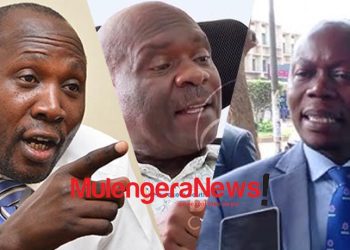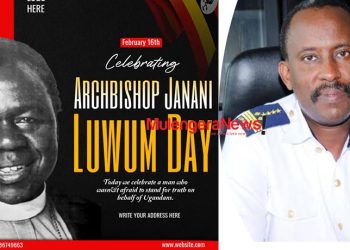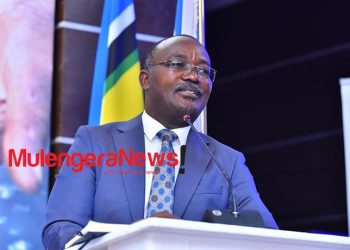By John V Sserwaniko
Chief Justice Bart Katureebe has refused to intervene in his deputy Owinyi Dollo’s decision to hear the Constitutional petition challenging the manner in which the age limit constitution amendments was carried out by Parliament December last year. Dollo’s decision sparked fury with some of the petitioners calling the decision politically motivated. Petitioners’ lawyer Erias Lukwago said the decision was in bad faith and was meant to kill the momentum and public interest the hearing was anticipated to create in Kampala many of whose residents are actively opposed to the amendment. The petitioners’ lawyers also believe the Mbale relocation is meant to financially exhaust them and impede their lawyers’ capacity to make use of state of the art research facilities like law libraries that are more plentifully available in Kampala.


KATUREEBE PETITIONED
The public outcry and the apparent bad faith manifested in Dollo’s pronouncement forced a consortium of public-spirited NGOs to write to the Chief Justice Bart Katureebe urging him to administratively intervene and reverse his Deputy’s decision. In a three page letter signed by Sarah Bireete, whose Center for Constitutional Governance coordinates a coalition of many other CSOs committed to defending constitutionalism, the NGOs argued that Dollo’s decision was in contravention of Articles 153(3)(b) and 137 of the Constitution. They argued that such directives by DCJ can only be made in consultation with the CJ and Attorney General resulting in a statutory order being issued. In their 23rd March letter, the NGOs assert that the absence of the Statutory Order clearly makes Dollo’s one man’s decision a clear breach of the law.
They also refer to the financial implication such unwarranted directive will have on the petitioners, their lawyers and most importantly the state coffers namely the Judiciary and the Attorney General’s chambers. They specifically refer to the Judiciary arguing that such huge expenditure that wasn’t even planned anywhere in the institution’s budget would only make worse the financial situation in the already “cash-strapped” arm of government. They say that the emergency monies that will cater for the AG lawyers, the Judges and support staff to make their long stay in Mbale a comfortable one will be an unfair expense to the tax payer yet at the end of the day, this is something that can be avoided with the CJ’s administrative intervention.
“We are not aware under what vote monies will be appropriated for this exercise,” the CSOs argue in their letter to CJ. They also say the additional cost coming with this relocation to Mbale amounts to making access to Justice undully expensive contrary to the spirit of the Constitution. They add that the relocation is constraining, prohibitive and curtails enjoyment of the petitioners’ Constitutionally guaranteed rights to access Justice. And most importantly this is a public interest litigation case at the end of which the petitioners (in case they succeed) aren’t expected to recover a lot of money in terms of costs.
The CSOs disclose that actually the entire legal team members are doing pro-bono meaning they are not expecting any pay from the petitioners whom they represent. They condemn Dollo for working against transparency in the way he is arbitrarily deciding to hear the matter in Mbale-hundreds of miles away from Kampala where citizens would be more enabled to shine a torch of scrutiny on the court proceedings. Without disclosing how they came to their conclusion, the CSOs say the public is very much interested in the case and are now perceiving the Judiciary in bad light and as an institution that is acting in bad faith. They say that because the Constitutional Court will be using the Mbale High Court premises, the other cases due for hearing will be jeopardized for lack of operational space. They say that Dollo’s directive causes the entire Judiciary to be perceived as complicit in the ongoing disregard of the Constitution as perpetrated by the executive arm of government whose December 2018 actions are the ones being challenged by the petitioners in this Constitutional Petition.
KATUREEBE RESPONDS
In his two page response, dated 26th March, Katureebe (who the CSOs had implored to reply before the hearing commencement date of 4th April) faults the CSOs for wrongly reading and misconstruing the constitutional provisions under Article 135(3)(b). He asserts that Article 135 is in reference to the Court of Appeal which is not in issue here. He says the Article concerns operationalizing the Divisions of the Court of Appeal (once fully constituted) and not the Constitutional Court (puts this in capital letters).
He says the Article which the NGOs addressed themselves to deals with the geographical locations where the Court of Appeal Division may sit and there is no reference to the Constitutional Court. He says in the alternative, the Judicature (Court of Appeal) Rules (20 & 21), that would have been applicable, too refer to Court of Appeal and not the Constitutional Court sittings. He concludes by stating that: “Your assertion that the Judiciary has breached or disregarded the Constitution (by moving to Mbale) has no basis.” Katureebe doesn’t make reference to the financial implications as claimed by the CSOs in their complaint to him and simply says those are “administrative concerns that can be addressed separately.” He advises the CSOs to get back to DCJ Dollo who “can address the administrative issues and make appropriate decision.” For comments, call/text/WhatsApp us on 0703164755!


















